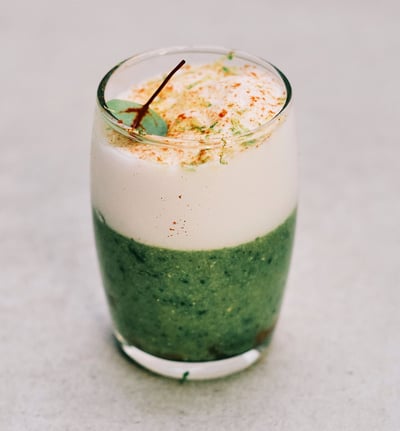We invent new edu-tainment concepts that bring regenerative cuisine to life.



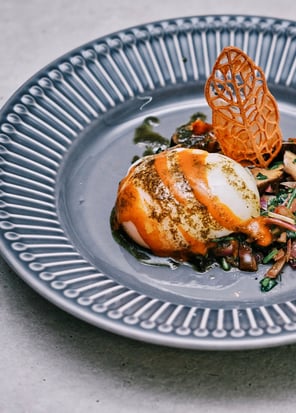



BRINGING REGENERATIVE CUISINE TO LIFE
invitation-only culinary explorations for innovators across the food system.
FUTURE FEASTS
DINNER LAB
San Francisco, CA
March 5, 2022
San Francisco, CA
March 24, 2022
Paris, France
June 16, 2022
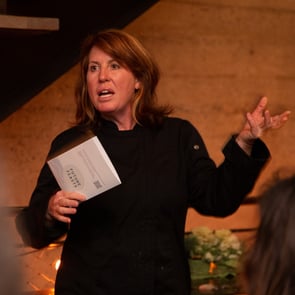
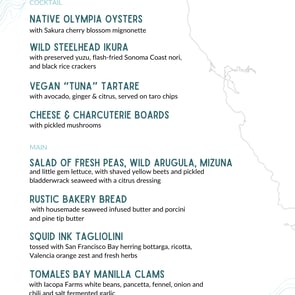
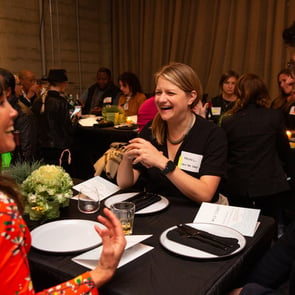
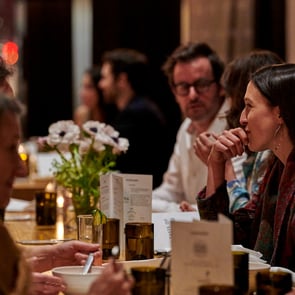
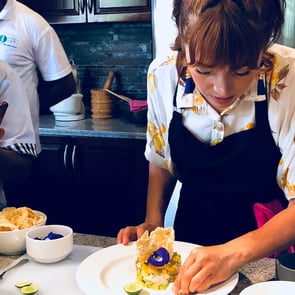
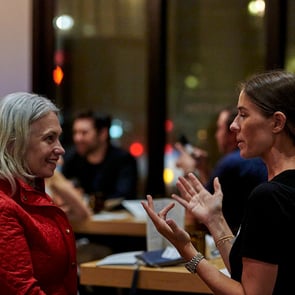
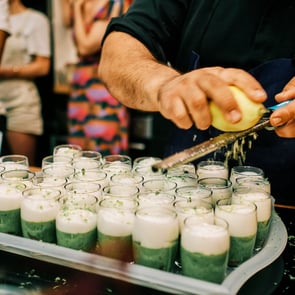
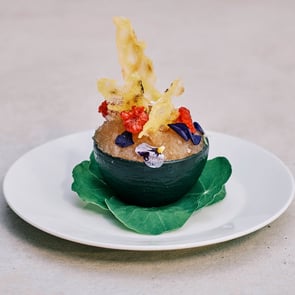
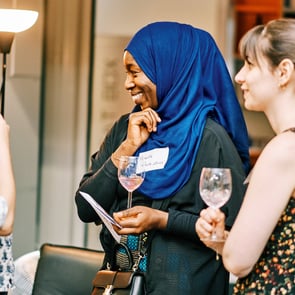
THE WILD COAST
Chef Maria Finn
A TASTE OF THE FUTURE
Chef Nicole Derseweh
A TASTE OF THE WEST
Chef Laurent Reuben
an immersive arts and culinary experience series in collaboration with Villa Albertine - France's leading cultural institution in the US.
FOOD FOR THOUGHT
ARTIST-LED CULINARY INQUIRY
January 25, 2023
Vita Brevis Social Club
March 29, 2023
St Joseph's Art Society
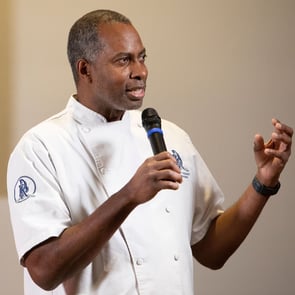
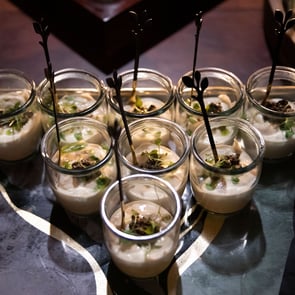
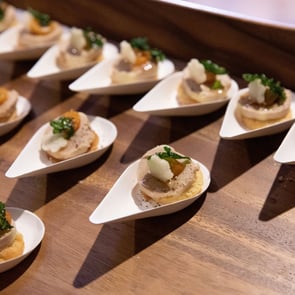
Introducing Food for Thought
Chef Robert Dorsey III
FATHOMABLE
Chef Maria Finn
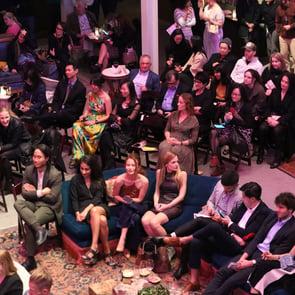
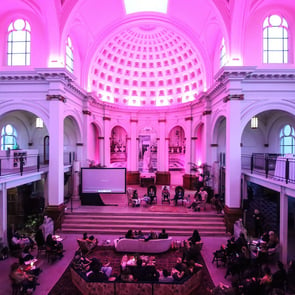
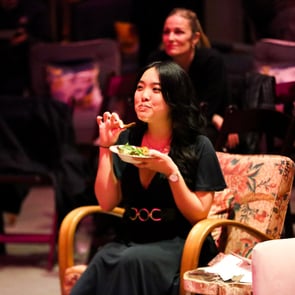
March 4, 2023
SF Public Library
Raphaelle Moatti and special guest Jonathon Keats hosted a public talk titled
Food + planet : crafting a delicious future of food that works for 100% of life.
NIGHT OF IDEAS
FUTURE OF FOOD WORKSHOP
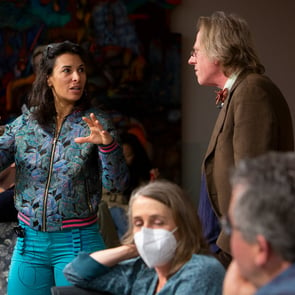

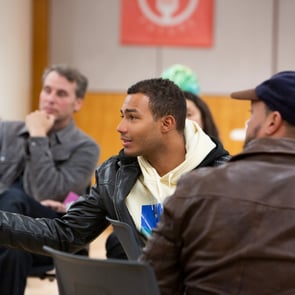
This conversation needs to keep happening on a larger scale so we can produce a critical mass and make it affordable to everyone.
-Viola
We’re building a community here around what we will be eating in 10 years - both in terms of products and systems. This is exciting!
-Philip
Here's what our GUESTs say
It was really interesting to have certain foods on the menu, like those oysters that were here in the Bay for a long time, and are being brought back. So it’s like looking forward and looking back at the same time.
It gives a more complete picture of the future of food.
-Gabrielle
I was delighted by the food, it was delicious. And what surprised me was the company: how many people are interested in exploring deep questions about regenerative practices.
- Barbara
INSPIRING CHANGE

The future of our food brings forth a plethora of interrogations and dynamic tensions we are facing today:
How might we honor cultural traditions while creating new specialties of the local terroir?
How might we move from monoculture/globalization of food production to more local, soil-enriching permaculture-type production, while ensuring we can still feed the soon to be 10B humans on the planet?
How might we encourage the creation of new food products that will be beneficial to our human health, that of our communities and our planet, while also respecting the fragile balances of those different ecosystems?
How might we accommodate the convenience and pleasure we seek in everyday eating, while balancing our personal nutritional needs and promoting long-term health?
How might we leverage the power of technology to help each of us eat in a way that is beneficial to our unique bodies and needs, while benefiting our environment?
Evolving our food system is as much a global issue as it is a personal journey.
It will require technical/technological advances, as well as cultural shifts in mindsets and habits. It will be influenced by incentives such as market dynamics, regulatory frameworks, and our own traditions, social networks, local environments, beliefs, choices and preferences.
Our culinary experiences reflect the variety of tastes, savors, and textures of acclaimed restaurants.
In addition to local and seasonal produce, they generally feature several types of seaweeds, mushrooms, koji, bi-valves, and hemp. And other regenerative products that tickle the fancy of the chefs we work with.
We also craft surprisingly delicious signature cocktails and mocktails.
What does this mean practically?
Production methods include regenerative agriculture, precision fermentation, circular and waste-reduction models:
Permaculture & soil-regenerating
Aquaculture & carbon-capturing
Repurposing food production with by-products
DEFINITION
The term "regenerative" or "regeneration" does not yet have a shared definition across disciplines or audiences.
Regenerative agriculture is becoming a buzz word in the food industry. But it is not yet on the public's radar.
Buckminster Fuller's meaning of the term regeneration applied to a system that benefits 100% of life.
Applying this lens, our working definition is food that benefits individuals, their communities, and the planet.
In other words, making our need for food a force for good.
The Nature Conservancy reports how today’s system of food production “threatens both people and nature, degrading our land and water, accelerating climate change and species loss, and making our farms, fields and fisheries less productive over time.”
They advocate for a “shift to a regenerative food system, producing food on land and at sea in ways that work in partnership with the world around us… that goes beyond sustainable and creates positive growth for communities, economies and the planet.”


